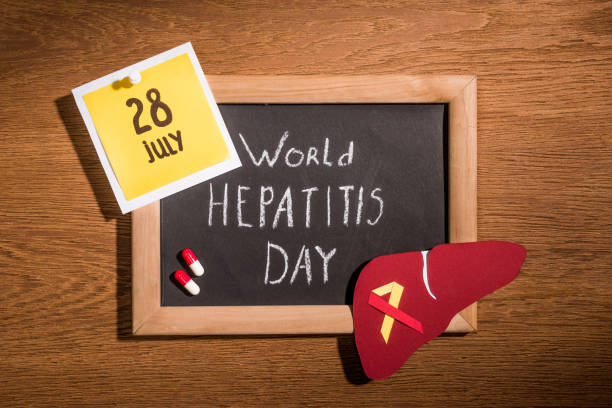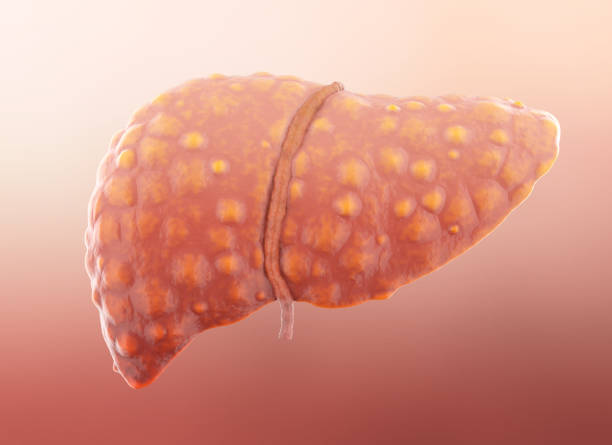
Hepatitis is an inflammation of the liver that is caused by Viruses, Bacteria, Alcohol, Drugs and other toxins.
World hepatitis day: what you should know, “Worldwide, 290 million people are living with viral hepatitis. Without finding the undiagnosed and linking them to care, millions will continue to suffer, and lives will be lost. On World Hepatitis Day, July 28, we call on people from across the world to take action and raise awareness to find the missing millions.” – worldhepatitisday.org
Hepatitis is an inflammation of the liver that is caused by viruses, bacteria, alcohol, drugs, and other toxins. Hepatitis is a liver disease, and since it affects a major organ in the body, it is imperative to avoid the causative risk factors by all means. It is worth noting that the liver is responsible for:
Of all types of hepatitis, the most severe is hepatitis B and C. Hepatitis B is caused by an infection with the Hepatitis B virus (HBV), which results in either:
In Nigeria, approximately 17-34 million people are infected with the virus, and it also accounts for 200,000 annual deaths in the country. It can be transmitted via sexual contact, contaminated sharp objects, mother-to-infant, child-to-child, or unscreened blood transfusion. In Africa, most chronic cases of hepatitis B infection are mainly transmitted from mother to child during birth or from child to child.

What you must know about hepatitis is that it is:
Ribeiro et al., Microbes Infect. 2002;4:829-835.
Alcoholic hepatitis: Alcohol hepatitis happens when there is excessive use of alcohol use that leads to inflammatory of the liver. People who drink heavily for an extended period of time may develop alcoholic hepatitis.
The symptoms include swelling of the stomach from accumulated fluid and yellow eyes and skin.
Treatment entails giving up alcohol, getting enough calories, and staying hydrated. Steroid medications can lessen inflammation in the liver.
Autoimmune hepatitis: Autoimmune hepatitis is a hepatic inflammation brought on by the immune system attacking the liver. It is uncertain what causes auto-immune hepatitis. Fatigue, stomach discomfort, and joint pain are among the symptoms.
Immunosuppressive medications can frequently be used to control it when started early in the treatment process. Rarely, a liver transplant can be necessary.
Hepatitis A: a hepatitis A virus-induced liver infection that is extremely infectious. A vaccination can prevent hepatitis A. It is transmitted by tainted food, water, or contact with an infected person.
Fatigue, nausea, low-grade fever, loss of appetite, and abdominal pain are some of the symptoms.
In one or two months, the problem resolves on its own. Rest and enough fluids can be beneficial.
Hepatitis B: In addition to increasing a person’s risk of dying from liver cancer and cirrhosis, which is a severe form of liver scarring, hepatitis B can create a persistent infection. Contact with contaminated bodily fluids, such as blood, saliva, vaginal secretions, and semen, can spread the infection, additionally, a mother might pass it on to her child. A reliable and safe vaccination can help avoid contracting hepatitis B. Usually administered shortly after delivery, booster shots follow a few weeks later. It provides almost complete virus protection.
Hepatitis D: Only those with a Hepatitis B virus infection can get Hepatitis D. It takes infected blood in touch for transmission to occur. Individuals who abuse intravenous drugs and those who have had several blood transfusions are considered at-risk populations.
Fatigue, nausea, and abdominal pain are among the symptoms.
Hepatitis D has few particular therapies, though several regimens can be tried. Additionally, management emphasizes supportive care.
On the other hand, hepatitis C can be transmitted through the ways hepatitis B is contracted, including the sharing of personal items like toothbrushes, unsterilized ear and body piercing, circumcision, and tattooing.
Hepatitis C: Hepatitis C is the most common of all the hepatitis; it mimics some of your physiology, like your LDL, in such a way that it wants to stay within your body system. There is no vaccine for hepatitis C. Having hepatitis C puts you at a risk of developing diabetes, cancer, and cirrhosis. A lot of individuals with hepatitis C have a high amount of iron (fe), and it is also difficult for your body to expel iron because of hepatitis C.
Iron creates oxidation and free radicals that create inflammation. Iron helps in the replication of the hepatitis C virus in the body, causing inflammation and scars on the liver, which can lead to cirrhosis and fibrosis of the liver. The hepatitis C illness tends to resolve spontaneously in individuals with the virus, especially younger female individuals.
The symptoms of hepatitis C are weight loss, dark urine, fatigue, nausea, joint pain, muscle and abdominal pain, yellow skin and eyes, and loss of cognitive functions.
The tricky side of this disease is that the early stages are asymptomatic. This means that it shows no symptoms, which is why it is usually referred to as “the silent killer,” as the liver is often damaged before the patient is even aware that he or she is infected.
Hepatitis ghosts the body’s immune system; it hijacks the immune system; neutralising the effectiveness of the anti-viral properties and making the body unable to fight back. The damage cause by hepatitis C turns to inflammation and, over time, into fibrosis.
Hepatitis E: a hepatitis E virus-related liver illness.
The primary method of hepatitis E virus transmission is through drinking water tainted with feces.
Nausea, vomiting, and jaundice are among the symptoms. Rarely, it could worsen and lead to acute liver failure.
Usually, hepatitis E goes away on its own in four to six weeks. The main goals of treatment are rest, rehydration, and supportive care.
Even though the disease is difficult to noticed by the patient at the initial stage, it can be detected by health experts. Diagnosis requires a simple blood test! Do you also know that, unlike some world-deadly diseases without a cure, there is actually a vaccine that makes you immune to hepatitis? Now that you know, ensure to get screened and know your status. If negative, endeavor to get vaccinated! If you tested positive, it is not the end of the world. Effective treatment is available.
Hepatitis C can be treated with a drug called SOVALDI-HCV 400mg, together with other medications. However, there are other patent herbs one can use on hepatitis like,
All the information provided here is for educational purposes only and not to replace your medical treatment. Check with your doctor before adopting any self-treatment.
On July 28th, World Hepatitis Day, we will once again be presented with an opportunity to join the world to raise awareness of the global burden of viral hepatitis and lend our voices to the challenges of prevention, diagnosis, and treatment. Spread the word in your little and big corners. A hepatitis-free world is achievable. It all begins with you and me.
Hepatitis is a curable illness if you start early with treatment or even gets vaccinated against it. You can also obtain major information and essential medical services through telemedicine, which uses telecommunication mediums, like chats, video calls, and telephonic conversations.
Telemedicine makes it easier for you to stay healthy, inquire about any medical condition, and get the necessary medical interventions. This can be done from the comfort of your home or office. Consult a doctor today.
1. How do you celebrate hepatitis Day?
2. What is the message for World Hepatitis Day?
We only have one liver and one life to live. A case of hepatitis can ruin both. Every day, the liver silently carries out more than 500 essential tasks to keep us alive.
3. Which color is associated with World Hepatitis Day?
The color green represents life, energy, and advancement. Over 1.1 million people die from hepatitis B and hepatitis C each year, out of the 325 million individuals who have hepatitis worldwide.
4. Why do we celebrate hepatitis day?
Every year on July 28, the day known as World Hepatitis Day (WHD), in honour of Dr. Baruch Blumberg (1925–2011), is observed. The first hepatitis B vaccine was created two years after Dr. Blumberg identified the hepatitis B virus in 1967.
5. What are the 7 types of hepatitis?
7 types of hepatitis are:
6. What is the deadliest hepatitis?
Hepatitis comes in three primary forms: A, B, and C. Even people who have an acute case of hepatitis C, which is the most fatal, can recover without permanent liver damage. Of people with persistent hepatitis C infection, up to 70% experience chronic liver disease, and up to 20% develop cirrhosis.
CDC. (2023) Viral Hepatitis.
Dr. Berg. E. (2022). Cure “The silent killer” hepatitis for only $84,000 (at $1000 a pill).
Emedicinehealth. (n.d). What type of hepatitis is most deadly.
John Hopkins Medicine. (n.d). Hepatitis.
World Health Organization. (2023). One life, one liver: World hepatitis day 2023.
World Hepatitis Alliance. (2024). World Hepatitis Day.
World Hepatitis Day. (2023). Australia glows green for world hepatitis day.
healthcareJuly 1, 2020
healthcareFebruary 27, 2025
healthcareAugust 20, 2025








